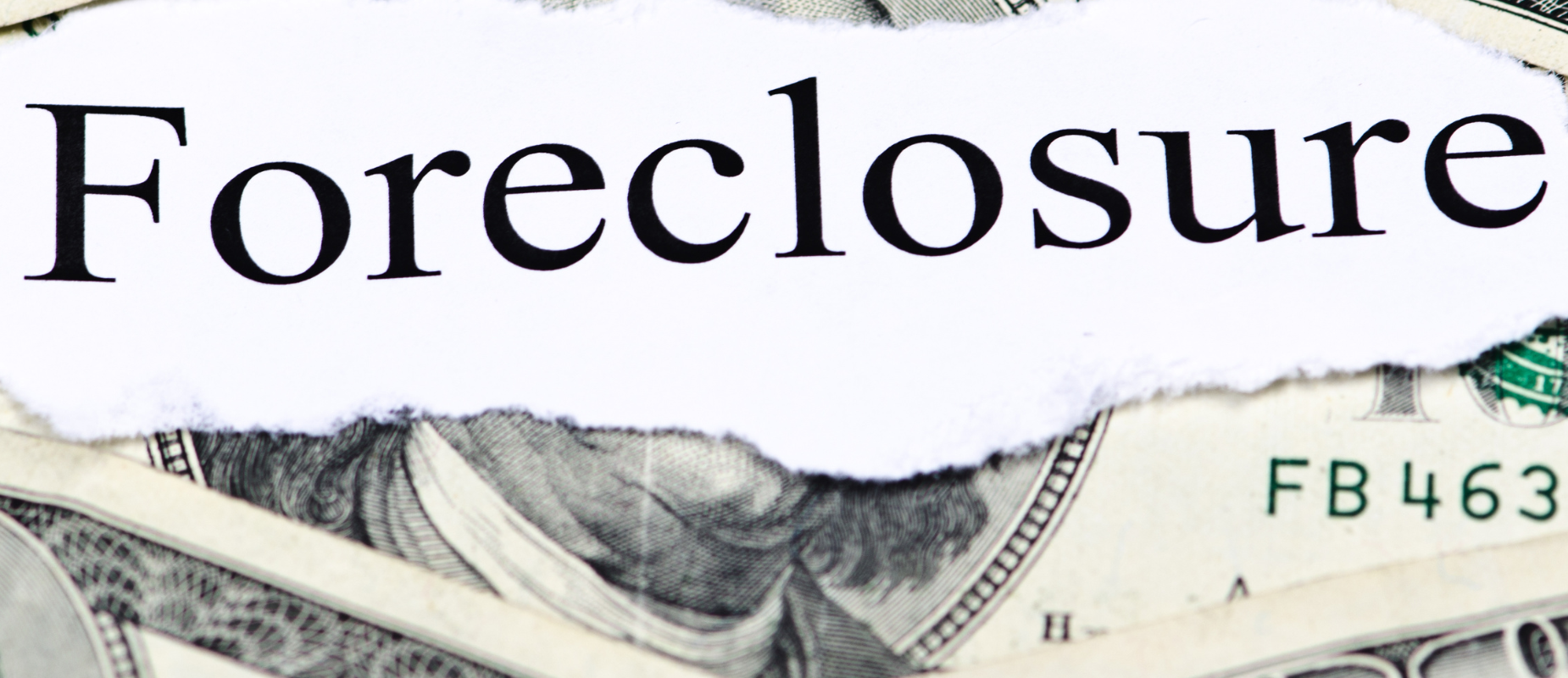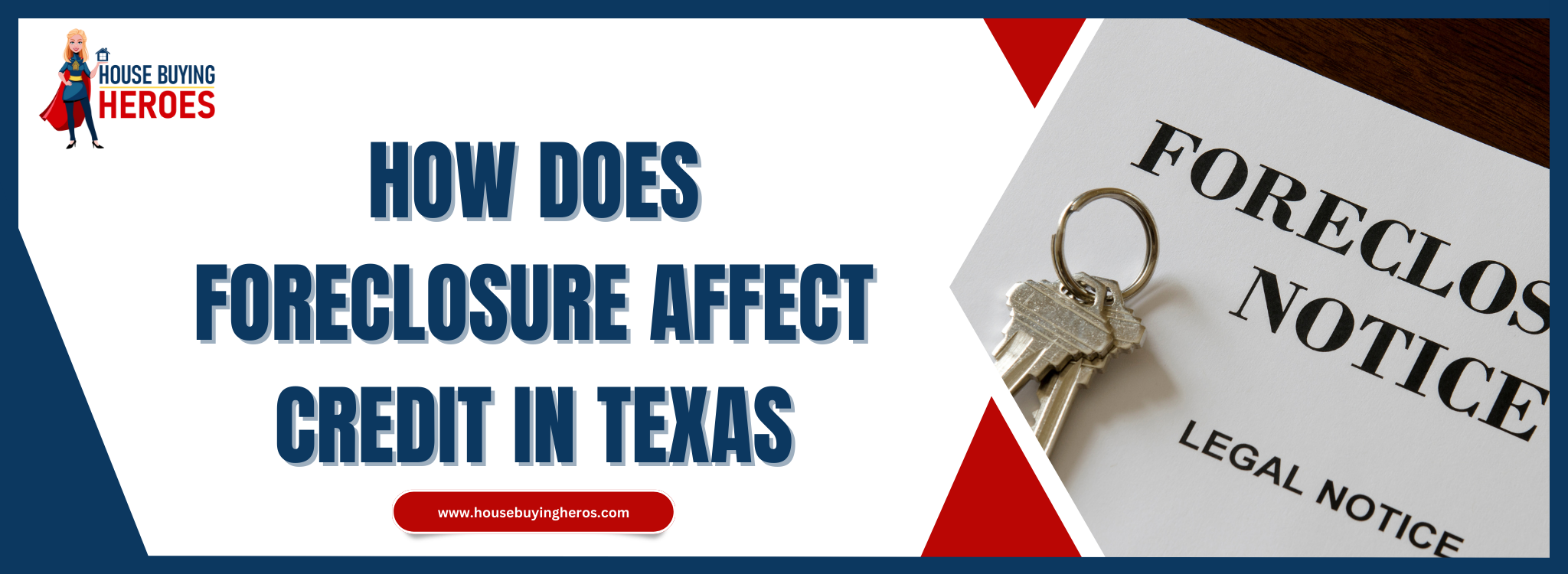
Understanding The Foreclosure Process: What Happens To Your Credit
Foreclosures can significantly impact credit scores in Texas, affecting both homeowners and the housing market. When a property goes into foreclosure, the homeowner has failed to make their mortgage payments, and the lender is taking legal action to recover the property.
This process can be initiated by the lender after just one missed payment, forcing the homeowner to vacate their home. Foreclosures can hurt an individual’s credit score for up to seven years, making obtaining loans or purchasing a new home difficult.
Foreclosures can negatively impact the real estate market by lowering property values and leading to an oversupply of available homes. Therefore, individuals must understand the impact of foreclosure on their credit to make informed decisions about homeownership and financial stability.
Navigating A Foreclosure: Do You Still Owe Money?
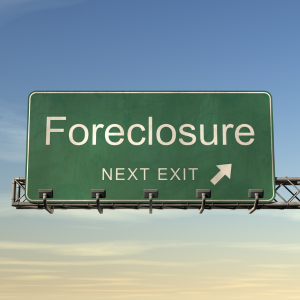
A foreclosure is a significant event that can long-term impact an individual’s credit score. Understanding the impact of foreclosure on housing and personal finances is critical in Texas’ dynamic real estate market.
A common question during foreclosure is whether the individual still owes money. While each situation is unique, it is critical to navigate this aspect carefully to avoid any potential financial consequences.
Navigating a foreclosure can be difficult and overwhelming, but understanding the potential financial obligations can help individuals make informed decisions about their future housing and real estate.
The Timeline Of A Foreclosure: How Long Does It Take?
In Texas, the foreclosure process can take a long time and be hard to understand. Many steps and factors can affect how long it takes. The process can take four to six months to more than a year, depending on the situation.
Most of the time, the first step is missing the first mortgage payment, which causes the lender to send a notice of default. After that, the homeowner has about 30 days to fix the problem before a notice of sale is sent out.
If the sale goes through, it may take 30 to 60 days for the property to be sold and given to the new owner. During this process, missed payments and past-due accounts will hurt credit scores, making it harder for homeowners to get new loans or find housing in the future.
People facing foreclosure need to know these dates and how they will affect their credit scores and chances of finding housing or real estate.
Avoiding A Foreclosure: Options And Consequences
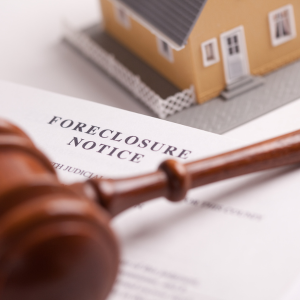
Foreclosure is a serious issue that can affect credit scores and the Texas housing market in the long term. For homeowners experiencing financial difficulties, it is critical to investigate all available options for avoiding foreclosure.
Possible options include loan modification, refinancing, or selling the property. However, it is critical to understand the possible outcomes of each option.
While loan modification can reduce monthly payments, it may also lead to longer repayment periods and higher interest rates. Refinancing can provide immediate financial relief, but it can also increase overall debt.
Selling the property may be the best option, but it could result in a loss of equity or bankruptcy. To avoid the negative impact of foreclosure on credit scores and the Texas real estate market, homeowners should seek professional advice before making any decisions.
Exploring Texas Foreclosure Laws And Their Impact On You
Foreclosures can significantly impact credit scores in Texas, so understanding the state’s laws is critical for real estate professionals. In Texas, lenders can foreclose on a property without going through court proceedings.
This makes the process faster and more streamlined, but it also gives homeowners less time to respond and potentially save their homes. Furthermore, Texas has strict deficiency judgment laws that can impact a homeowner’s credit long after the foreclosure process.
Individuals must become acquainted with these laws and their potential implications in order to make sound decisions about their homes and finances.
The Power Of Bankruptcy In Preventing Foreclosure

In the state of Texas, foreclosure has a significant impact on credit scores and can have a significant impact on the housing and real estate markets. Bankruptcy is a powerful tool for those facing foreclosure to avoid negative credit consequences.
Filing for bankruptcy allows homeowners to stop foreclosure and potentially save their homes from being seized. Bankruptcy may offer debt restructuring and manageable payment options.
This can help people keep their homes and improve their credit scores in the long run. Understanding the effectiveness of bankruptcy in preventing foreclosure is crucial for Texas residents experiencing financial difficulties.
Filing For Bankruptcy: How It Can Save Your Home From Foreclosure
While filing for bankruptcy can be scary and overwhelming, it may be a way for homeowners in Texas who are facing foreclosure to avoid losing their homes. People who file for bankruptcy may be able to keep their homes from being taken back by creditors.
However, it is important to know how it might affect credit scores and the housing market. Bankruptcy may temporarily stop the foreclosure process, but it can hurt your credit score and make it harder to get loans or mortgages in the future.
It is important to carefully consider the pros and cons of filing for bankruptcy before making a choice since it can have a big impact on your finances and the Texas real estate market.
Debtstoppers: Your Partner In Avoiding Foreclosure
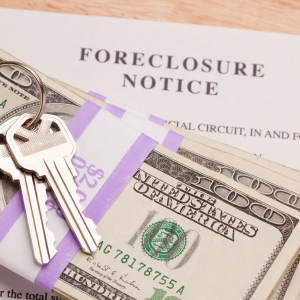
In Texas, foreclosure can have a big effect on credit scores, which can have a big effect on the housing and real estate market. When people have trouble making their mortgage payments, their credit scores may go down, making it harder for them to get loans or mortgages in the future.
This could lead to fewer people owning their homes and more homes being returned by the bank. With the help of DebtStoppers, people facing foreclosure can find a partner to keep them from losing their homes.
DebtStoppers helps homeowners with financial trouble get help and advice from experts so they can stay in their homes and avoid foreclosure. With their help, people can work on improving their credit scores and keeping their homes from going into foreclosure.
Protecting Your Home And Finances: Taking Action Against Foreclosure
Texas homeowners are very worried about foreclosure because it can hurt their credit scores and make them less financially stable. To protect your home and finances, you must know how foreclosure affects housing and real estate.
With the number of mortgage defaults and foreclosures going up, it’s important to protect yourself from this possible danger. Be proactive and know your options. This will help you avoid foreclosure and protect your home and finances.
If you want to avoid potential problems and keep your Texas housing stable, you can fight foreclosure by refinancing, modifying your loan, or getting professional help.
Find Us Anywhere: Our Multiple Office Locations For Convenience
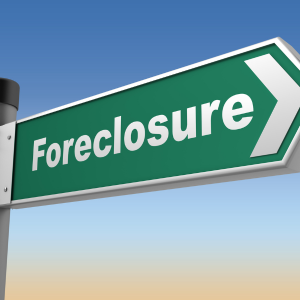
To fully understand how foreclosure affects credit scores in Texas, it is important to understand how it affects housing and real estate. Because of this, our team of experts has several office locations across the state to make things easier for you.
No matter where you are in Texas—Dallas, Houston, Austin, or any other city—we can help you understand how foreclosure affects your credit score and give you the information and advice you need. You can easily contact us, and we are dedicated to helping you make smart choices regarding your housing and real estate options.
Find us at a location near you to get reliable help and support, no matter where you are in Texas.
Simplify The Process: An In-depth Look At What Is A Foreclosure
People lose their homes through foreclosure when they can’t make their mortgage payments. The lender then takes possession of the property. This has been happening more and more in Texas over the past few years, and it can have a big effect on a person’s credit score.
It’s important for both homeowners and potential buyers to know how foreclosure affects housing and real estate. It’s important to take a close look at what exactly a foreclosure is and take the mystery out of the process.
People can get a better idea of how this complicated process affects their credit scores and the Texas real estate market as a whole by learning more about it.
The Lingering Effects Of A Foreclosure On Your Credit Report

Foreclosure is a big problem in Texas, and it can hurt your credit score for a long time. It not only makes it harder for people to find housing, but it also changes the real estate market in big ways.
When a homeowner’s home is foreclosed on, their credit score can drop significantly. This can make it hard for them to get loans or interest rates that are affordable in the future. Lenders may be less willing to give mortgages to people with bad credit, which can have an effect on the housing market as well.
A foreclosure can also stay on a person’s credit report for up to seven years, which makes it even harder for them to rebuild their credit and get good terms on housing and real estate deals. Because of this, it is important for both homeowners and people who work in the real estate industry in Texas to know how foreclosure affects a person’s credit report for a long time.
Seeing Through Lender’s Eyes: Understanding How They View A Foreclosure
When it comes to foreclosures, lenders have a unique point of view that you need to know about. For them, foreclosures are a sign of risk and a chance to lose money.
A foreclosure will show up as a red flag on a borrower’s credit report, showing that they can’t make payments on time and handle their money well. This can have a big effect on how the lender decides to handle the borrower’s future loan requests.
Lenders might also think about where the property is and the laws in Texas about foreclosures, which could change how they feel about the situation even more. People who are trying to get a loan should know how lenders feel about foreclosures so they can better handle this difficult process and lessen the damage it does to credit scores and the Texas housing market.
Removing The Stain: Steps To Remove A Foreclosure From Your Credit History
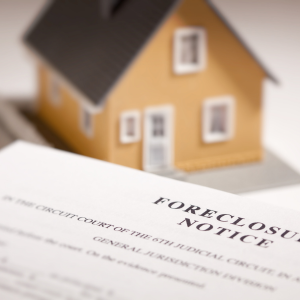
Texas foreclosures can have a big effect on people’s credit scores, making it hard for them to get loans or mortgages in the future. You can get rid of this mark on your credit report, though, if you take some smart steps.
The first thing you should do is look over your credit report to see if there are any mistakes or false information about the foreclosure. Once you know what they are, you can dispute them with the credit bureaus and ask that they be removed from your report.
You can also lessen the bad effects of foreclosure by improving your overall credit health by making payments on time and keeping your credit card balances low. Professional help from a credit repair company might also help you get through the process and get the foreclosure off of your credit report.
You can get rid of this flaw and increase your chances of becoming a homeowner in Texas in the future by taking action.
Bouncing Back After A Foreclosure: Tips For Improving Your Credit Score
Foreclosure can hurt a Texas resident’s credit score. Foreclosure can impact one’s housing and finances.
A foreclosure can be overcome, and your credit score improved. To do so, focus on paying off remaining debts and paying bills on time.
Different loans and credit cards may also help diversify your credit portfolio. Check and dispute errors or discrepancies on your credit report regularly.
After a foreclosure, a low debt-to-income ratio and responsible credit use can help rebuild your credit. Being patient and following these tips can help people improve their credit scores and overcome foreclosure in Texas’s competitive housing and real estate market.
A Closer Look At Short Sales Vs. Foreclosures And Their Similarities

Understanding the effects of foreclosure on Texas credit scores on housing and real estate is crucial. Short sales and foreclosure are similar because both involve selling a property for less than the mortgage.
These two options are different despite their similarities. Both can hurt a homeowner’s credit score and make future loans difficult, but short sales may be less damaging.
Both can also affect the local housing market and real estate prices. By comparing short sales and foreclosures, we can better understand how they affect Texas residents.
State-specific Considerations: How Does Texas Handle Credit And Foreclosures?
Texas has its own credit and foreclosure rules and regulations. The state uses a non-judicial foreclosure process, which eliminates the need for lenders to go through the court system to foreclose on a property.
This may result in a faster foreclosure process than in other states. However, Texas has strict laws in place to protect homeowners from predatory lending practices.
One example is the requirement for lenders to give a 20-day notice before beginning the foreclosure process. Texas also has a strong homestead exemption law that protects homeowners’ primary residences from creditors.
These state-specific considerations have a significant impact on how foreclosures and credit scores are handled in Texas, as well as on the state’s housing and real estate markets.
Learning From Others’ Mistakes: Common Missteps That Lead To Foreclosures
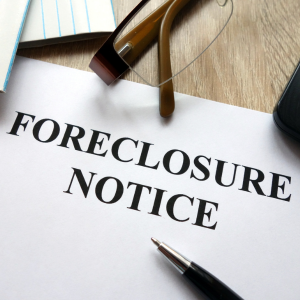
Texas homeowners fear foreclosure because it affects credit scores and the real estate market. People can avoid repeating mistakes by learning from others.
Borrowing too much is a common foreclosure mistake. Overspending on a house or credit card debt is an example.
Insufficient financial planning and an emergency fund make it hard to pay the mortgage during unexpected life events. Not communicating with lenders and seeking help can also lead to foreclosure.
Understand these common mistakes to better manage your finances and avoid the devastating effects of foreclosure on your credit score and the Texas housing market.
Preparing For The Future: Steps To Take Now To Prevent Future Financial Hardships
As the impact of foreclosure on credit scores in Texas remains a major concern for homeowners, it is critical to take action now to avoid future financial difficulties. First, assess your current financial situation and develop a budget to ensure timely mortgage payments.
Understanding your state’s foreclosure laws and seeking professional assistance if necessary is also critical. Maintaining a good credit score, making all payments on time, and reducing debt can also help you avoid future foreclosure.
Finally, considering alternative housing options, such as renting or downsizing, can provide a safety net in an unexpected situation. Individuals who take these proactive steps can better prepare for the future and lessen the negative impact of foreclosure on their credit scores and overall financial well-being.
How Badly Does A Foreclosure Hurt Your Credit?
Foreclosure is a dreaded word for any homeowner and with good reason. Not only does it result in the loss of one’s home, but it can also have a negative impact on their credit score.
In Texas, where foreclosure rates are on the rise, understanding the impact of this process on housing and real estate is critical. A foreclosure can reduce a person’s credit score by up to 200 points, making it difficult to obtain future loans and mortgages at low interest rates.
Furthermore, a foreclosure can remain on a person’s credit report for up to seven years, further harming their financial standing. As a result, understanding how foreclosure affects credit scores in Texas is critical for people looking to protect their credit and make informed housing decisions.
What Happens When A House Goes Into Foreclosure In Texas?

When a home in Texas goes into foreclosure, it can have serious consequences for both the homeowner’s credit and the overall housing and real estate market. When a homeowner fails to make mortgage payments, the lender takes possession of the property. This is known as foreclosure.
This not only has a negative impact on the individual’s credit score, but it also contributes to an increase in available properties for sale, potentially driving down home values. Furthermore, foreclosure can create a domino effect, causing other homeowners in the same neighborhood to struggle with their own property values and credit scores.
Individuals must understand the consequences of foreclosure in Texas and take proactive measures to avoid it.
Can You Fix Your Credit After Foreclosure?
Foreclosure can have a significant impact on a person’s credit score, particularly in Texas. As one of the states with the highest foreclosure rates, it is critical to understand how this process impacts housing and real estate.
Many people wonder if they can repair their credit after a foreclosure. The answer is yes, but it takes careful planning and dedication.
Individuals can improve their credit scores by creating a budget, paying bills on time, and using credit repair services. While foreclosure can be a difficult experience, it is not the end for those who want to rebuild their credit and achieve financial security.
How Long Does A Foreclosure Stay On Your Credit In Texas?
When it comes to the impact of foreclosure on credit scores in Texas, one of the most pressing questions is how long this negative mark will stay on a person’s credit history. According to experts, a foreclosure in Texas can remain on a person’s credit report for up to seven years.
This could have a significant impact on their ability to find housing and obtain favorable mortgage rates in the future. Foreclosure can impact eligibility for other types of credit, including car loans and credit cards.
It is critical for Texas homeowners to understand the long-term effects of foreclosure on their credit and take proactive steps to reduce its impact. By delving into the nuances of this issue, we can gain a better understanding of how foreclosures affect the Texas housing and real estate market.
This information applies to Texas and its cities, including Irving, Palestine, and Spring. For assistance or questions, please call us at (855) 563-4376. You can also visit our website at House Buying Heros for more details.
More Resources For Texas Homeowners
| CREDIT CARD COMPANIES | AUTO LOAN | BANKERS | EXPERIAN | FICO | REAL ESTATE LAWYERS |
| SHORT-SALE | ATTORNEY | LAWYER | DEBTORS | NON-RECOURSE | NON-RECOURSE LOAN |
| REFINANCE | AUCTION | INVESTMENT | INVESTING | PERSONAL LOAN | TRADEMARKS |
| REGISTERED TRADEMARKS | TAX | TAXES | JUDGE | FEES | |
| FHA LOAN | EQUIFAX | EMAIL ADDRESS | DEED | CONSUMER | |
| VA LOANS | UPSOLVE | HUD | U.S. DEPARTMENT OF HOUSING AND URBAN DEVELOPMENT (HUD) | U.S. | TRANSUNION |
| PROPERTY OWNER | PANDEMIC | NEWSLETTERS | SUING | LAWSUIT | FORMULA |
| MATHEMATICAL FORMULA | DEFAULTING | DEED IN LIEU OF FORECLOSURE | CONTRACT | CALIFORNIA | THE COVID-19 PANDEMIC |
| COVID-19 | WASHINGTON | WASHINGTON STATE | UTAH | VETERANS AFFAIRS | CHECKING ACCOUNT |
| THEFT | PHONE NUMBER | SSN | REAL ESTATE AGENT | BROKER | PRIVACY |
| NEVADA | CREDIT LINE | LIENS | LICENSES | INSURER | IDENTITY THEFT |
| IDAHO | HARVARD UNIVERSITY | FAIR CREDIT REPORTING ACT (FCRA) | FAIR CREDIT REPORTING ACT | EXPENSE | DOWNPAYMENT |
| DEBT RELIEF | DEBIT CARD | COPYRIGHT | TERMS AND CONDITIONS | COLLATERAL | CASH |
| AFFECT YOUR CREDIT | OF YOUR CREDIT | TO THE CREDIT | A CREDIT CARD | YOUR CREDIT REPORTS | IN YOUR CREDIT |
| IMPACT YOUR CREDIT SCORE | TO THE CREDIT BUREAUS | FROM YOUR CREDIT REPORT | IS A GOOD CREDIT | YOUR CREDIT SCORE FROM | TO IMPROVE YOUR CREDIT |
| TO FIX YOUR CREDIT | HURT YOUR CREDIT SCORE | REMOVED FROM YOUR CREDIT | FOR A CREDIT CARD | GET OUT OF DEBT | CREDIT REPORT FOR SEVEN |
| AFFECT YOUR CREDIT SCORE | REMAIN ON YOUR CREDIT | A SECURED CREDIT CARD | IN YOUR CREDIT HISTORY | A DEED IN LIEU |

